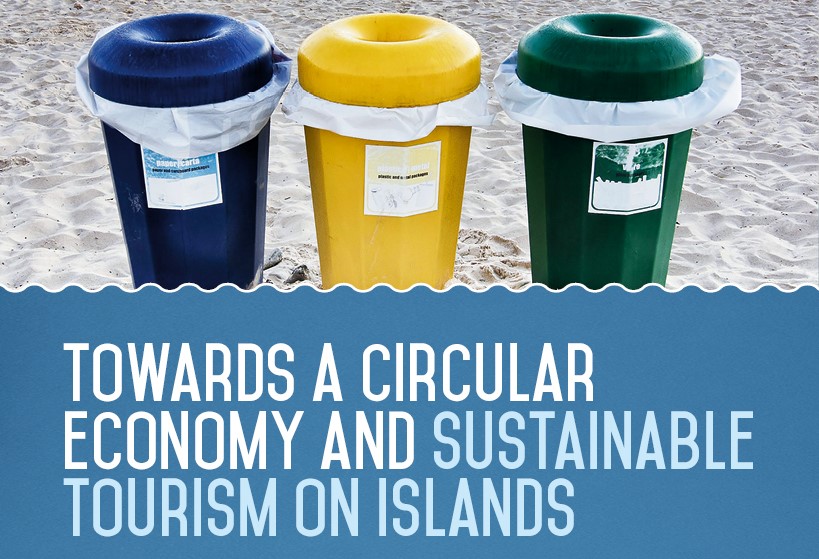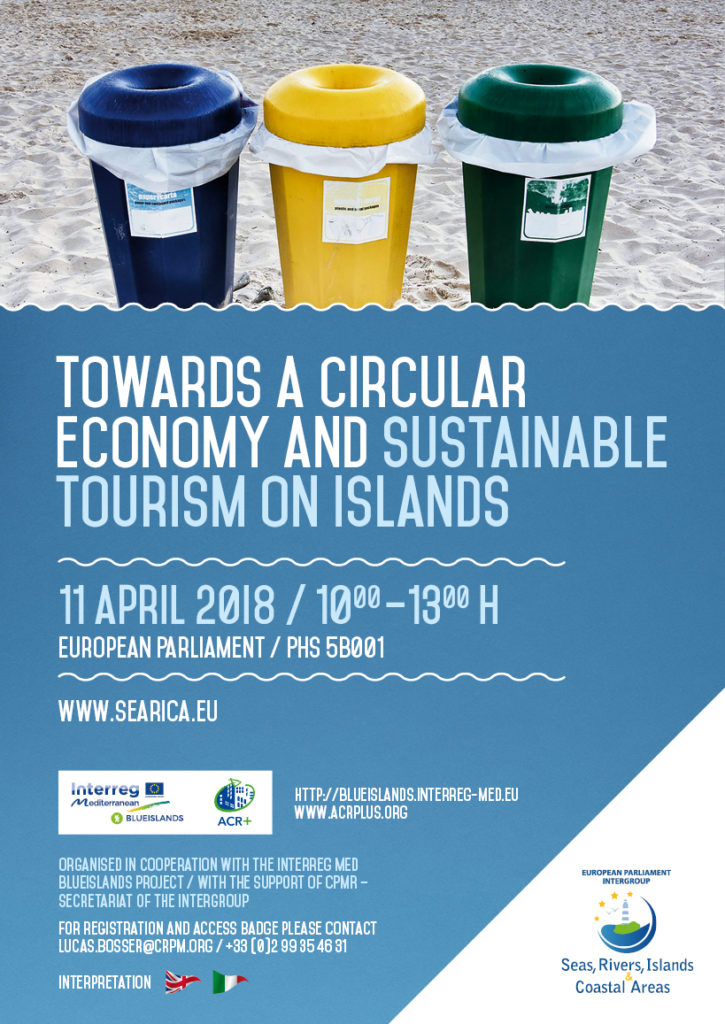Conference: Towards a circular economy and sustainable tourism on islands

The Mediterranean region is the world’s leading tourist destination. In the summer season, due to the annual tourist wave, mediterranean islands host a far greater population. This is beneficial for the local economies, but it also puts a huge burden on the local infrastructures, especially for waste management systems.
The growing attention to the potential of sustainable tourism as a lever to promote circular economy is at the basis of the BLUEISLANDS project (ERDF Co-funding under the Interreg MED program). The project gathers 8 major and 55 smaller islands of the Mediterranean in a systematic effort to identify, address and mitigate the effect of the seasonal variation of waste generated on Mediterranean islands as an effect of tourism.
Several policies and instruments address Coastal and Maritime activities, including tourism and waste management, and call for a more sustainable and cooperative approach, among which the Maritime Spatial Planning, the Integrated Coastal Zone Management instrument, the UNEP/MAP Mediterranean Strategy for Sustainable Development, the Blue Growth Strategy, the BLUEMED Initiative, the Bologna Charter Initiative and the Integrated Regional Development policies on sustainable tourism. The Circular Economy Package and the new EU strategy on plastics specifically aim to improve waste management policies in order, among others, to tackle marine litter and the adverse impacts of waste generation. Nevertheless, a stronger coordination is still needed between policies to achieve sustainable development results for islands and coastal areas, harmonising the interests of key coastal sectors such as tourism through interregional cooperation and cross-sectoral collaboration.
This is the background of the conference “Towards a circular economy and sustainable tourism on islands”, which will gather a high level panel of key actors willing to: enhance mutual learning opportunities between islands and regions dealing with seasonal variation of waste and marine litter; build consensus on a shared path towards material resource resiliency, circular economy and sustainable tourism on islands.



 EN
EN ES
ES FR
FR